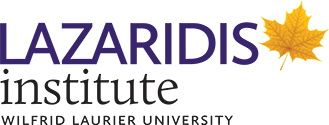Improvisation for innovation: The contingent role of resource and structural factors in explaining innovation capability
Liu, Y, LV, D, Ying, Y, Arndt, F and J Wei (2018). Improvisation for innovation: The contingent role of resource and structural factors in explaining innovation capability, Technovation, 74-75: 32-41.
This paper focuses on resource and structural factors to explore the relationship between organizational improvisation and innovation capability. Although the role of improvisation has attracted increasing academic attention in fast-changing environments, little is known about the conditions under which firms benefit from improvisation. This paper addresses this gap using an organizational learning perspective that explains the role of a firm's organizational structure and organizational resources for improvisation and innovation. A large-scale survey in China finds that firms vary in their levels of (I) centralization and formalization of decision making and (II) resource slack and investment irreversibility and that these factors moderate the relationship between improvisation and innovation capability in distinct ways. Consistent with our theorizing, improvisation enhances innovation capability when firms have a decentralized but formalized structure or pursue the dual goals of maximizing resource slack and minimizing investment irreversibility.
This paper focuses on resource and structural factors to explore the relationship between organizational improvisation and innovation capability. Although the role of improvisation has attracted increasing academic attention in fast-changing environments, little is known about the conditions under which firms benefit from improvisation. This paper addresses this gap using an organizational learning perspective that explains the role of a firm's organizational structure and organizational resources for improvisation and innovation. A large-scale survey in China finds that firms vary in their levels of (I) centralization and formalization of decision making and (II) resource slack and investment irreversibility and that these factors moderate the relationship between improvisation and innovation capability in distinct ways. Consistent with our theorizing, improvisation enhances innovation capability when firms have a decentralized but formalized structure or pursue the dual goals of maximizing resource slack and minimizing investment irreversibility.

